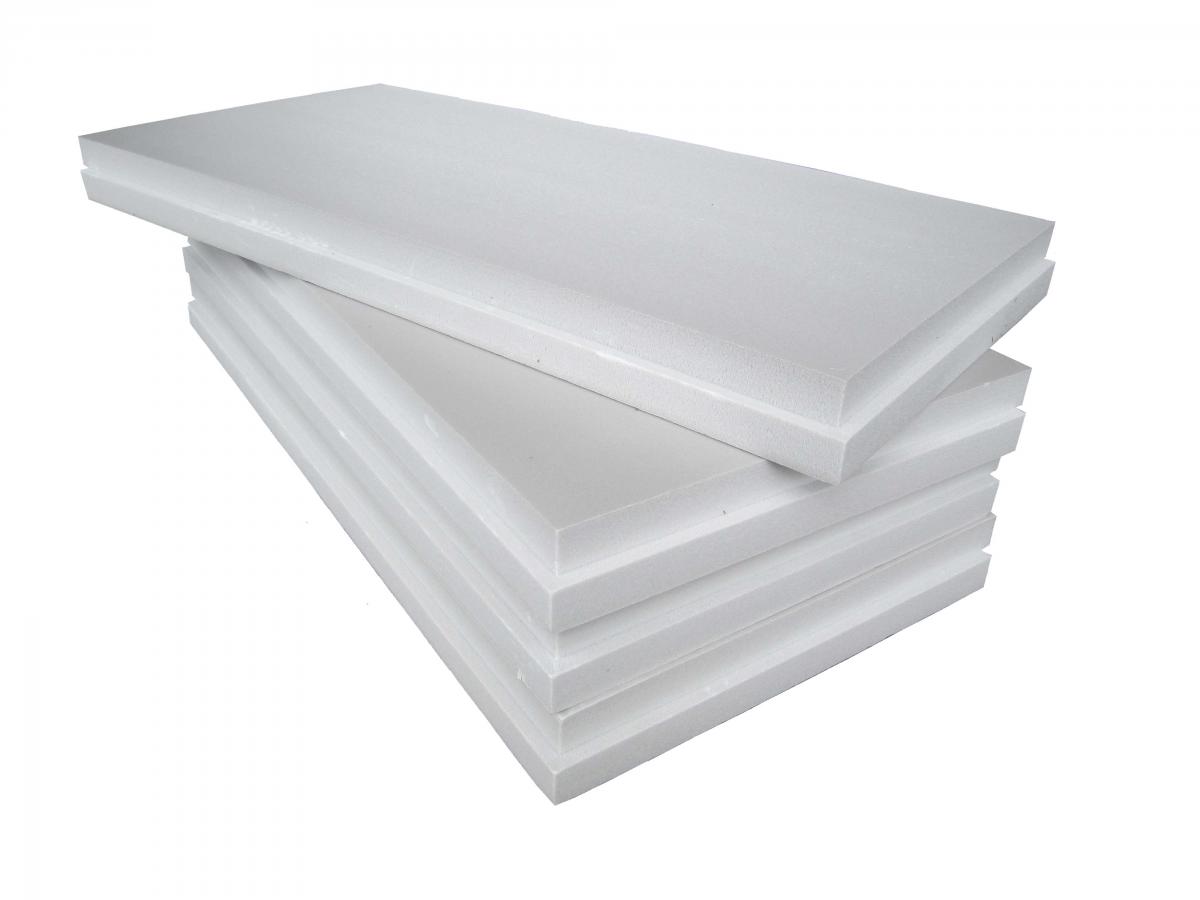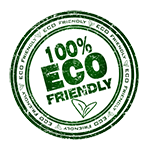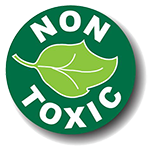EPS
Thanks to its excellent thermal insulation properties, relatively low cost and ease of processing Expanded polystyrene (EPS) is used in many areas of activity.
Main area of EPS application — packaging of goods, production of disposable tableware, containers for food products, thermal insulation and, of course, construction.
It is an auxiliary material for different modeling, production of advertising elements, foundry patterns. It is also used in beekeeping. It has been actively used for thermal insulation of facades for more than 40 years. The use of this material significantly reduces the energy consumption for heating buildings. Taking into account the low thermal conductivity (0.04 W / mK), EPS is used as thermal insulation in domestic refrigerators and water heaters.
In construction it allows to reduce the thickness of insulation required to provide the desired level of heat and, therefore, the material costs. For example, to provide the same level of thermal conductivity, the thickness of the wall of the EPS has to be 5 times less than that of the timber and almost 50 times less than the thickness of the reinforced concrete wall.
"Shortcomings" of the material — its ability to sustain combustion. Special fire-protection (fire-retardant) additives are added to the raw material to prevent it. When it is used in the construction it is necessary to follow the technologies of application.
AREA OF APPLICATION OF EPS PRODUCTS
- Internal and external frontline insulation
- Insulation of deckings
- Insulation of refrigerated warehouses
- Pipe insulation, thermal filling of inter-joints
- Manufacture of resin
- Production of PVC door panels
- Decorative works
- Manufacture of packaging materials

EPS — ENVIRONMENTAL SAFETY
Polystyrene foam — environmentally friendly material. It is made from oil by means of certain stages of the manufacturing process and at a very economical consumption of natural raw materials. Steam is used for polystyrene foaming — raw material.
Expanded polystyrene does not contain fluorine hydrogen chloride and the final product consists of 98% of the air enclosed in the pores. The proof of its environmental purity is its use for food packaging and in small quantities for the manufacture of toys. Recent tests of the products of combustion have shown that expanded foam as well as timber emits only CO2 during combustion and as well as wood according to the toxicity of combustion of products refer to the group T2 — group of products of moderate risk. Expanded polystyrene has a high resistance to different substances, including sea water, salt solutions, cement and others. It is not absorbed by animals and micro-organisms and does not create a breeding ground for fungi and bacteria.
ENVIRONMENTAL SAFETY 100%

NON-TOXIC

RESISTANT TO BIOLOGICAL EFFECTS AND CHEMICAL ENVIRONMENT
EPS IS EASY TO USE
When working with certain construction materials it is necessary to use various outfits: protective coveralls, gloves, goggles, respirators.
The use of expanded foam does not require applying protection means: it is not poisonous, it is odorless, does not emit dust during processing; it does not cause irritation of the skin — that is very convenient and important in the construction. Expanded foam is a non-toxic compound, exposure to it does not cause any danger to humans and animals.
EPS — DURABLE MATERIAL
In Ludwigshafen (Germany)the BASF concern carried out the laboratory testing of expand foam samples taken from the insulated roof which had been insulated over 40 years ago and have shown that this material has not absolutely changed its properties. It has kept all its characteristics and the most important — full thermal insulation.
SAVING ON HEATING AND AIR CONDITIONING
In buildings with good thermal insulation the costs of heating are 40-70% lower than in buildings that lack such isolation. Therefore, polystyrene plates not only make the house comfortable all year round, but also save money on heating and air-conditioning. Money invested in thermal insulation (on average 0.5–3.0% of the cost of the new building) pay off in a very short period of time.
EPS — BIOLOGICALLY INERT
Mold can develop and air quality can significantly become worse, if the wrong insulation has been chosen in the house. This occurs because some insulation materials may be affected by microorganisms. Insulation of polystyrene plates is not afraid of fungi, mold and bacteria.
EPS — LIGHTWEIGHT MATERIAL
A low "weight category" of expanded polystyrene insulation can reduce costs for construction work, lower costs of the use of special equipment and significantly reduce installation time.
EPS — FIREPROOF MATERIAL
Multiple fire tests throughout the world have shown that the expanded foam is a safe material. It does not maintain and does not spread the fire.
EPS IS NOT HYGROSCOPIC
Water absorption is 0.5-3% of the volume. The steam diffusion in the expanded polystyrene is negligible. Polystyrene sorption humidity is 3-6% of the weight.


